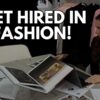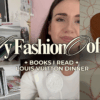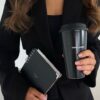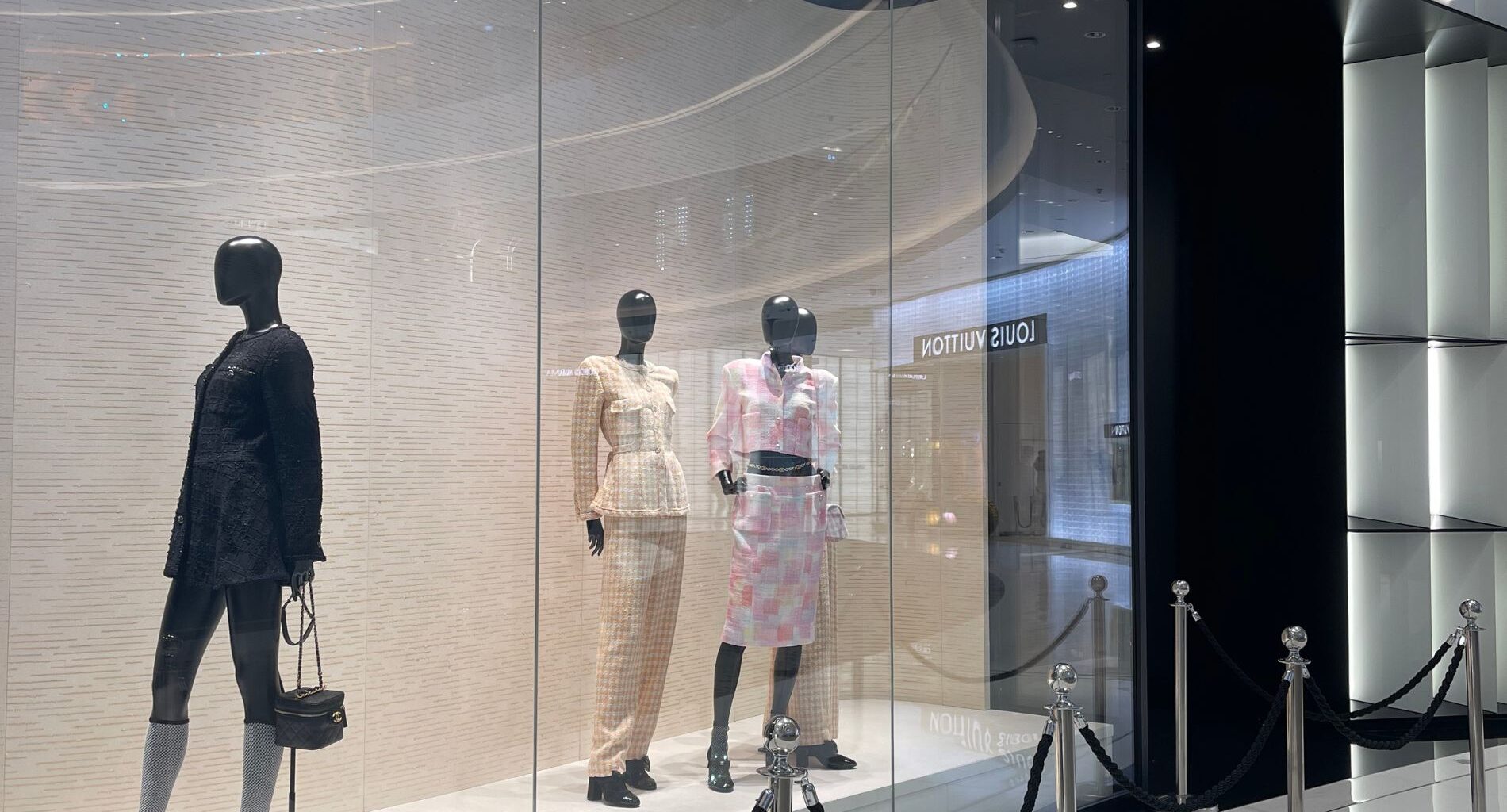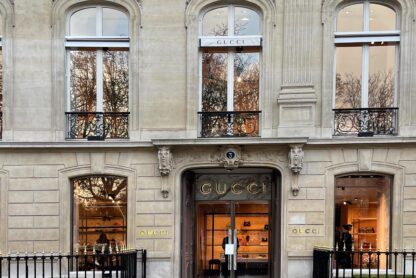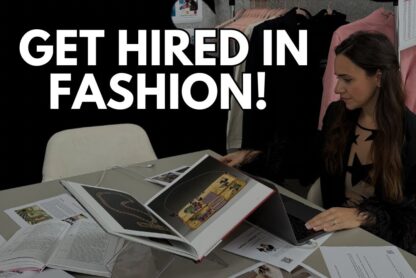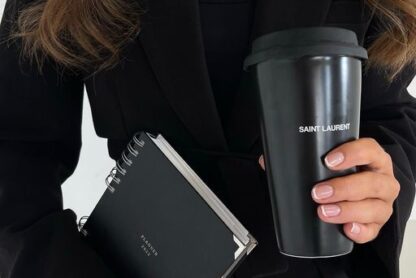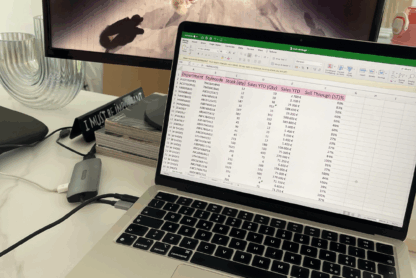The world of fashion is dynamic and multifaceted, offering many career opportunities – more than what you might think of. If you’re currently working in a retail job as a sales associate, sales assistant, volunteer, or intern in a store but dream of transitioning to a corporate role in fashion, you’re not alone. Many successful professionals have made this leap, leveraging their frontline experience to build thriving careers in the corporate realm.
The experience in store is very common among students and recent graduates. You might be working in retail part-time to finance your education. Maybe you took on retail jobs temporarily or seasonally, during peak shopping periods like holidays. Or you simply might have ended up in the store because you thought it was a good idea to get started in fashion. Whatever the reason for your retail job in fashion, whether you enjoy it or not, you might have reached a point where you’d like to transition to other departments. This article will provide you with advice and practical steps to help you navigate this career transition effectively from retail to corporate fashion.
Transitioning From Retail to Corporate Fashion
How to leverage your retail experience to get a job in fashion
Working in retail provides a wealth of experience that is highly valuable in corporate roles in different departments such as buying and merchandising, marketing, PR, and communication.
Did you know that some brands send their corporate employees to work in stores for some time? This is because the retail environment helps them gain a deeper understanding of customer behavior and preferences, which can inform their strategic decisions.
Here’s how to leverage your retail experience in corporate fashion:
- Customer Insights: Your direct interaction with customers gives you a unique perspective on consumer behavior and preferences. This knowledge is particularly useful for roles in buying, merchandising, marketing, and product development.
- Sales Data Analysis: If you’ve been involved in sales reporting, highlight your ability to analyze sales data and understand trends. These skills are again very valuable in buying, brand management, and marketing.
- Product Knowledge: Your firsthand experience with products can be beneficial in roles like buying and product development, where understanding product details is crucial.
- Communication Skills: Effective communication with customers and team members is vital in any corporate role, especially PR and marketing.
So how can you make the transition from retail to corporate fashion?
Understand the Corporate Fashion Landscape
The first step to go from retail to corporate in fashion is to understand the different roles available to identify where you want to go. Key areas include:
- Buying: Selecting and purchasing the pieces of the collection that will be sold in stores.
- Marketing: Promoting products and creating brand awareness.
- Product Development: Overseeing the design and production of new products.
- Supply Chain Management: Ensuring products are delivered on time and efficiently.
- E-commerce: Managing online sales platforms and strategies.
- Brand Management: Developing and maintaining the brand’s image and messaging.
- Finance: Managing the financial aspects of the fashion business.
- PR: Handling public relations and media communication.
Familiarize yourself with these roles and identify which ones align with your skills and interests.
Look for jobs or internships in corporate fashion
After identifying the department you want to transition to, it’s time to start looking for jobs or internships.
Fashion internships for students and recent graduates
If you are a student or a recent graduate in whatever field – not necessarily fashion, – with just a short retail experience of less than 6 months, internships are your entry point into the corporate fashion world.
You can therefore easily transition to a corporate role by looking for fashion internships. Your short experience in store of 6 months or less is too little to be considered enough to apply for a full-time position, hence why you need to apply for internships first.
Example: If you worked in retail for four months and now want to move into fashion marketing, look for internships in the marketing department at your favorite fashion brands.
If you have more than 1 year of experience in retail and you are no longer a student or eligible for internships, you can instead apply for jobs.
I suggest making the career transition – whether it’s with an internship or a job – within the same company you are working in retail.
Even if you plan to change brands eventually, transitioning to a corporate role within the same company where you are currently working in retail is often easier. You have the connections, and your application process is smoother because you are already part of the organization. After gaining some corporate experience, you can then move to another brand.
How to transition to a corporate role at the same brand you are working in retail
If you are currently working in retail for a specific brand, for example, Louis Vuitton, and wish to transition to a corporate role at the same brand, leveraging your internal connections is the smartest move.
- Build Relationships with HR: Make a point to get to know your HR representatives. Express your career aspirations and seek their advice on how to navigate the transition. They often have insights into upcoming opportunities and can guide you on the skills and experiences needed.
- Network with Corporate Employees: Use your current position to connect with corporate employees. Attend company events, meetings, and trainings where you can meet and engage with them.
- Seek Mentorship: Identify a mentor within the company who is in a corporate role. They can provide valuable guidance, and support, and potentially advocate for you when opportunities arise.
Expand Your Job Search
If after trying first within the same brand you realize that internal opportunities are limited, look for jobs or internships at other companies.
Tips to land a fashion internship or job after a retail experience in-store
In order to apply for a fashion internship or job, as usual, you need the following application documents: resume, cover letter, and portfolio.
Tailor your resume to highlight relevant skills and experiences
Examples of skills gained working in fashion and luxury retail to include on your resume:
- Product Knowledge in Luxury Goods
- High-End Sales Techniques
- Luxury Customer Insights
- Inventory Management
- Visual Merchandising
- Communication Skills
- Personal Styling
- Brand Ambassadorship
- Upselling and Cross-Selling
- Sales Data Analysis
- Time Management
- Problem-Solving
- Team Collaboration
- Adaptability
- Cash Handling and POS Systems
- Event Coordination for In-Store Promotions
- Attention to Detail in Product Presentation
- Multi-tasking
- Leadership and Training
- Customer Loyalty Programs
- Conflict Resolution
- Knowledge of Fashion Trends
- CRM Software Proficiency
- Microsoft Excel
Showcase your motivation to transition from retail to corporate fashion in a cover letter
Example of a cover letter to transition from an experience in-store to a fashion buying position
Write a compelling cover letter that explains your passion for fashion and how your retail experience has prepared you for a corporate role.
For example, let’s say you want to go into fashion buying after an experience in a store. Here is what you could include in your cover letter:
Start with a strong opening that captures the hiring manager’s attention. Briefly mention your current role and your aspiration to transition into fashion buying.
Example: “As a sales associate at [Retail Brand], I have developed a keen understanding of customer preferences and sales trends, which I am eager to leverage in a fashion buying role at [Company].“
Use specific examples to demonstrate how your retail experience has prepared you for a buying role.
Example: “In my current position, I consistently analyze sales data to identify top-selling products and emerging trends. By closely monitoring customer feedback and purchasing patterns, I have successfully recommended product assortments that have increased sales by 15%.“
Then you can also highlight the key skills that make you a strong candidate for a buying role.
Example: “My experience with inventory management has taught me the importance of maintaining optimal stock levels and minimizing overstock. Additionally, my background in visual merchandising has given me an eye for product presentation and market positioning.“
Don’t forget to convey your enthusiasm for the fashion industry and the specific company you’re applying to.
Example: “I am passionate about the fashion industry and have always admired [Company] for [reasons why you admire the brand]. I am excited about the opportunity to contribute to your team and help shape future collections.“
Build your fashion portfolio
You might believe a portfolio might not be applicable to a retail experience but as I teach my students in my Break into the Fashion Industry course where I train them on the portfolio as well, remember that there is always a way to include projects in your portfolio to show your skills.
By adding a portfolio to your application, you will boost your chances of getting the new role and impress recruiters. Most individuals who want to transition from retail to a corporate role in fashion will just include their resume but whether you are about to apply for an internship or job in another fashion department, if you include a portfolio as well, you will for sure impress recruiters and have more chances to land the new position.
Examples of what you can include in your portfolio if you want to go into fashion buying after an experience in retail:
- Sales reports you’ve created or analyzed while working in the store. Highlight your findings and any actions taken based on your analysis.
- Visual Merchandising Examples. Provide photos or descriptions of merchandising displays you’ve created. Explain the rationale behind your choices and the impact on sales.
- Trend Analysis. Share any research or analysis you’ve done on fashion trends. This could be in the form of written reports, presentations, or even mood boards LINK.
- Customer Feedback. Include testimonials or feedback from customers that highlight your product knowledge and customer service skills.
- Inventory Management. Describe any inventory management projects you’ve worked on, including strategies you implemented to optimize stock levels.
Transitioning from a fashion or luxury retail role to a corporate position requires leveraging your retail experience, enhancing your skills, and strategically applying for roles. By networking within your company, tailoring your application materials, and preparing thoroughly for interviews, you can successfully make the move to a corporate career in the fashion industry. Stay motivated and focused on your career goals, and your retail experience will serve as a strong foundation for your corporate aspirations.
If you need more help with your applications and finding jobs and internships in fashion, enroll in my online course Break into the fashion industry, or start first from my free webinar.
